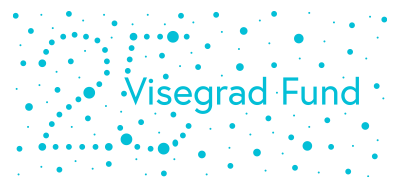Q: We have a bank account in PLN/HUF/CZK. How will we receive the grant?
A: The grant amount will be transferred in EUR. Upon receiving the grant, it will be converted to your local currency (PLN, HUF, or CZK) based on the prevailing exchange rate on that date.
Q: What exchange rate should we use if our bank account isn't in EUR? Can we use the grant to cover exchange rate losses?
A: If your bank account isn't in EUR, you have two choices. You can use either the exchange rate from your national bank on the date of conversion of the grant tranches into local currency or the average monthly exchange rate from your national bank in the last full month of the project. But it's important to note that the grant cannot be used to cover exchange rate losses.
Q: Do we need to provide bills, invoices, bank statements, etc.?
A: It is recommended to adhere to the legislation of your country and follow the internal regulations of your organization regarding accounting practices. Additionally, the Fund reserves the right to request any additional financial documents that would prove the claims in the Financial Statement and, in exceptional cases, can request an independent accounting audit of the project.
Q: What expenses can be covered by the approved grant?
A: The approved grant can be used to cover any costs directly associated with each planned joint event or visit. For a detailed breakdown of eligible budget categories, please refer to the Guidelines (V4Gen_Guidelines). Please note, all payments must be realized within the implementation period of the project.
Q: Do we have to send half of the grant to our partner? How do we pay our partner(s)?
A: There is no explicitly prescribed split of the grant budget between the grantee and the partner(s). It is expected that project partners will collectively determine the financial responsibilities based on a mutually agreed arrangement between the grantee and the partner(s). The Fund does not provide a standardized template for this agreement, so it must be formulated in accordance with the local laws and regulations. You have the option to either reimburse your partner(s) or provide an advance payment; both options are allowed.
Q: What is the implementation period of the project?
A: The implementation period of a project refers to the time period during which project activities are carried out. For the V4Gen project, the maximum implementation period is set at 6 months. Specific details about the implementation period for your project can be found in the contract.
Q: We know that we have a budget for each activity which was created based on number of participants. Is it possible to spend less on one activity and more on the other?
A: Yes, it is possible to transfer unused grant resources from one mobility to the other one.
Q: Can we purchase some equipment if we see that it is needed for a particular activity (e.g., sport equipment, cameras, computers etc.)?
A: Yes, you can purchase equipment, but you need to get approval from the Project Manager first if the cost of equipment exceeds 1000 EUR. These expenses can be covered from the "Office supplies and materials" budget category. However, it's essential to remember that while there may be situations where acquiring equipment is needed for the project's success, the main focus should always be on how it directly benefits and involves young people.
Q: Can we order sweatshirts/T-shirts for participants, and if yes - are there any limits in such a category?
A: Yes, you are allowed to allocate funds for sweatshirts/T-shirts for participants. These costs fall under the promotional cost category (please use the Fund’s logo for preparing promotional materials - Logo). While we do not impose specific limits on spending within this category, we strongly encourage adhering to the "value for money" principle, ensuring that expenses are justified and provide meaningful value to the project.
Q: Can we allocate funds for administration or overheads? Are these costs covered by the grant?
A: Yes, you may allocate a portion of the funds for administration or overheads. Overhead costs encompass internal expenses related to the project, including, but not limited to, remuneration paid to accounting or teaching staff, rental/usage of own premises, telephone bills, and other costs directly associated with the project. It is advised to limit these costs to 15% of the entire grant amount.
Q: Are cash payments allowed?
A: We strongly recommend conducting transactions through bank transfers. However, if there are exceptional circumstances where bank transfers are not feasible (e.g., for very small amounts or in situations where card payments are not possible), cash payments may be allowed. Please note that such cases should be considered as exceptions and should be consulted on with your project manager.
Q: Is it possible to give pocket money to participants in cash?
A: The disbursement of pocket money to participants in cash can vary based on the specifics of your project and should be consulted on with your assigned Project Manager. If cash payment for pocket money is allowed, it's crucial to allocate this expense in the overheads budget category and provide a list of awarded participants (as an attachment to the list of participants).
